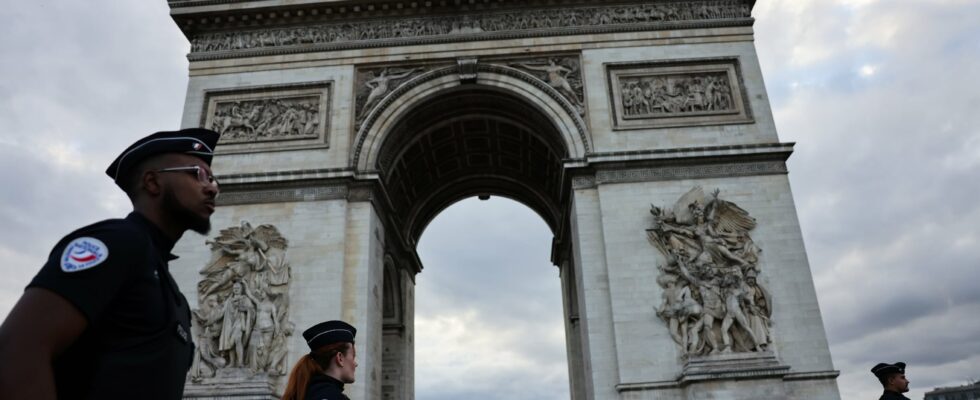The Athletes’ Village came back to life on Wednesday, August 21, north of Paris with the arrival of the first athletes who will participate in the Paralympic Games from August 28 to September 8, an opportunity for them to change the way people look at disability. Ceremony, organization, security arrangements, transportation: here is everything you need to know about the second part of the competition.
4,400 para-athletes
The Village, which covers 52 hectares in an area spanning Saint-Denis, Saint-Ouen and the Île Saint-Denis, will house a total of up to 9,000 people during the competitions. In addition to the 4,400 athletes from some 180 countries, administrative staff, assistants, chaperones, doctors and physiotherapists will reside there. The French delegation is made up of 237 athletes.
Between the two competitions, the site did not need any special redevelopment, because it was “programmed for the Paralympic phase”, according to its director. “All the roads, sidewalks and access points are completely accessible to people with reduced mobility”, specified Laurent Michaud.
Opening ceremony on August 28
The opening ceremony will be held on August 28 at 8 p.m., between the Place de la Concorde and the Champs-Elysées, in a sumptuous, safe setting at the bottom of the legendary Parisian avenue, with the aim of being “inclusive” and “spectacular,” according to the organizers. In front of 65,000 spectators seated on stands on the Place de la Concorde, in the heart of Paris, this three-hour ceremony imagined by Thomas Jolly, artistic director of the Paris Games, will launch the first Summer Paralympic Games organized in France.
Like the one on July 26, it is being held outside an Olympic stadium. Four stages will be set up on the Place de la Concorde. The team promises “performances never seen before” and a show very focused on the body. For the first time, the ceremony’s choreographer, Alexander Ekman, collaborated with dancers with disabilities.
The 4,400 para-athletes from 182 delegations will parade from the Arc de Triomphe. Among them, 240 French athletes should take part in this popular parade, led by Nantenin Keïta and Alexis Hanquinquant, the two French flag bearers. No big name of guest artist has leaked at this stage, but the newspaper The Team announced that it would be a “crossing of our musical repertoire”. The music is once again by Victor Le Masne, composer of the Olympic anthem, and the costumes were created under the supervision of Daphné Bürki.
25,000 law enforcement officers mobilized
The Olympic cauldron will once again be illuminated and will take off into the Parisian sky as was the case every evening during the two weeks of Olympic competitions. The closing ceremony will be held on Sunday, September 8 at the Stade de France, like that of the Olympic Games.
Audio description, specialized shuttles… No specific details have been released on the accessibility features planned for the inauguration ceremony. However, specific places are provided by the ticket office for people with disabilities, specifically in wheelchairs or companions, for a price ranging from 150 to 700 euros on the Internet.
Some 15,000 members of the police force will be involved, with a total of “35,000 spectators in the stands at Place de la Concorde – and 15,000 seats open to the public at the bottom of the Champs-Elysées”, according to Gérald Darmanin. The minister mentioned internal security perimeters and the fight against terrorism around Place de la Concorde and the Tuileries Gardens, the details of which will be announced later. 25,000 police officers and gendarmes will be mobilized throughout the Games. “We will have the support of the three intervention forces” (BRI, Raid, GIGN), with 300 personnel, and “10,000 private security agents”, added the minister, stressing that there was no “characterized threat” at this stage.
800,000 places still available for the events
The public is expected to be there at most competition sites: more than 1.75 million tickets to attend an event have been sold, the organizers announced on Wednesday. A dozen sports are almost sold out, with 800,000 places still available.
In terms of public transport in Paris, the metro in particular – old and not very accessible – remains a black spot for the reception of people with disabilities. But the resigning Minister of Sports Amélie Oudéa-Castera assured that “more than 65 stations were accessible”.
Paralympic athletes did not hide their joy when the Village reopened on Wednesday. “The Olympic Games are good, but the Paralympic Games are better, because the athletes have difficult stories, it will be a great spectacle,” said Czech para archery champion David Drahoninsky. Venezuelan para taekwondo athlete Valeria Morales said she hoped that para-athletes would now be “recognized as athletes like any other.”
